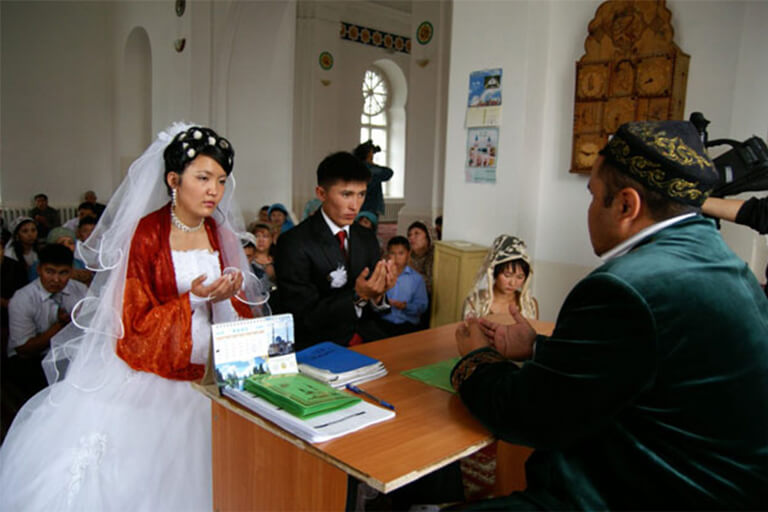Muslim Voices — Kazakhstan

Audio transcript:
0:00:06:>>ROSEMARY PENNINGTON: Welcome to Muslim Voices. I'm your host, Rosemary Pennington. The Soviet Union was an amalgamation of different states spread across Europe and Asia in an attempt to create a cohesive nation out of the various cultures, religions, and peoples included in the USSR. The communist government worked to erase or mitigate historical and cultural differences. In Muslim countries like those of Central Asia, this involved discouraging people from practicing Islam. When Communism fell and the various states within the Soviet Union gained independence, there was a rush to reclaim lost heritages. In many of the Central Asian Muslim nations, a kind of Islamic Renaissance took place as Muslims began to openly explore and take up the practice of Islam. Kazakhstan is one of those Central Asian nations. The majority of the population there is Sunni Muslims of the Hanafi school. Among them, 25-year-old Asmad, who shared his thoughts on Islam in Kazakhstan with Muslim Voices.
0:01:15:>>ASMAD: We used to be parts of USSR which as you know seized rule and they tried to destroy, not only the Islam but the, maybe church or Christianity or any other religious domination. So we, for so couple hundred years, we've been under the Russian rule and basically, they didn't allow us to practice any part of your religion. But alhamdulillah, we still hold on on the what we believed and maybe it wasn't as the same as in other countries, but we have, after taking the independence, we have an emergency that people are starting to learn their religion back and to realize that's a part of their lives. That's just a part of the culture which was shown as a backwards, which was shown as something that normal, modern person wouldn't ever do and it's basically, by the end of this last century, it was perceived as something the old people or old grandfather was told on and will try to explain to you but has no idea himself because he grew up being a Soviet communist. And so, to his pursuit that something backwards, not only the Islam but our history itself was shown as a backwards. We don't have any culture. You don't have any culture, the only thing you have to know is the Soviet rule and whatever they write as a history for you. Another part the, historically, they didn't want us other like stan countries, Kazakhstan. They don't want us to be united and they don't want us to share language or culture. Many people, they just, they couldn't show their interest in their religion and after we've got independence, it's free. It's your choice to choose. If you're a Christian, it's free to choose Christianity or Islam or any other religion. So yeah, I can definitely see that there is an emerging theory. More people practicing, trying to practice, trying to learn. I can see the more use coming to the slum. So I'm really happy for that. I wasn't a practicing Muslim until maybe my like 18 or 20 years old because as you know, we didn't even practice our own language so we had to come back to it as if like from the start. And, but I love it. I think it gives me so much in my life. It gives me direction.
0:04:16:(SOUNDBITE OF MUSIC)
0:04:28:>>ASMAD: I didn't really realize that I am Hanafi till I came. Well, I knew that I am Hanafi but I didn't actually know anybody else who is not Hanafi so it's by default so you don't actually think oh, I'm Hanafi and I'm different than others, no. Maybe I could see that difference when I came here. But still, it's a really minor thing and I don't think it's something that I associate myself with. I don't say well, I'm Muslim but I'm also Hanafi, no. I don't ever say, I'm just Muslim and maybe I saw the difference in the mosque here where there are people from all over the world and maybe they have small changes or small differences in details but that's it. But I never thought of all that before coming to US.
0:05:18:(SOUNDBITE OF MUSIC)
0:05:34:>>ROSEMARY PENNINGTON: This has been Muslim Voices, a production of the voices and visions project in partnership with WFIU public media from Indiana University. Support comes from the Social Science Research Council, music was provided by Animus. You can find Muslim voices on Twitter and Facebook or subscribe to our podcast in iTunes. There's also a blog. Find us at muslimvoices.org.
0:05:57:(SOUNDBITE OF MUSIC)


 IU Global
IU Global